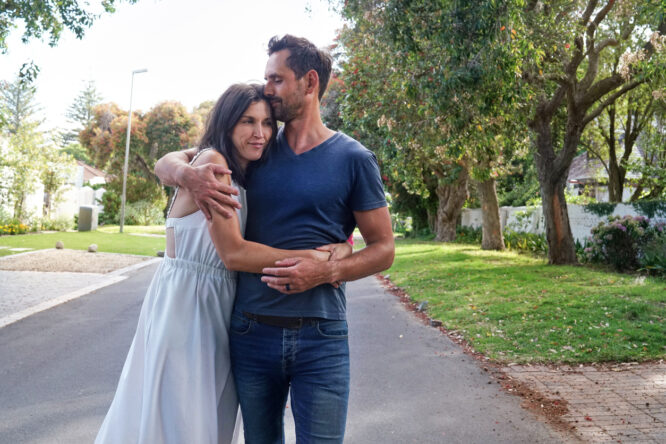We all walk into relationships with some kind of picture in our heads.

We think we know how it should look, feel, and unfold, or at least how we’d like it to. There’s nothing wrong with knowing what you want from a partner and from love. The problem is that some of those expectations are not only a tad unrealistic, but they quietly set us up for frustration. Here are 15 worth letting go of if you want to actually have a happy, healthy connection.
1. They should just know what you need without being told.

This one’s a classic. It feels romantic to believe someone should intuitively understand you, but in reality, even the most caring partner can’t read your mind. Expecting them to just “get it” often leads to disappointment. Clear communication doesn’t make the connection less special. It makes it stronger. When you speak up about what you need, it gives the other person a real chance to show up for you, not just guess and hope it’s right.
2. You should agree on everything if you’re truly compatible.

Being in sync doesn’t mean being identical. It’s totally normal to have different opinions, habits, or ways of thinking, and that doesn’t mean your relationship is doomed. Healthy couples find ways to respect their differences instead of seeing them as red flags. What matters more is how you navigate the disagreements, not whether you avoid them altogether.
3. Love should always feel exciting and intense.

The butterflies and fireworks are great, but they’re not meant to last every second. Expecting constant passion can make the normal, quiet parts of love feel boring when they’re actually really important. Real connection includes soft, steady moments too. Those everyday check-ins, shared meals, and low-key laughs might not be cinematic, but they’re often where the real closeness grows.
4. If it’s right, it won’t take work.

This is one of those myths that sounds comforting but causes damage. Every good relationship involves effort, not because it’s broken, but because it matters. Showing up, growing together, resolving conflict, and staying connected takes intention. The work doesn’t mean the love isn’t real; it means you care enough to invest in it properly.
5. They should be your everything.

Movies love this idea of one person completing you, but in real life, it’s way too much pressure. Expecting a partner to be your best friend, therapist, cheerleader, and emotional outlet 24/7 is just not sustainable. Healthy relationships allow space for outside friendships, hobbies, and personal growth. You’re still a whole person, even in love. Giving each other breathing room often brings you closer, not further apart.
6. Good relationships don’t have rough patches.

No relationship is smooth all the time. Life throws things at you—stress, tiredness, personal struggles—and sometimes that affects how you relate to each other. The presence of a tough phase doesn’t mean the relationship is broken. What counts is how you move through it together. Sometimes the rough patches are what help you grow into something stronger.
7. They should always make you happy.

It’s sweet to want to bring each other joy, but expecting someone else to be your main source of happiness puts a lot on their shoulders. That’s something no one can carry all the time. Your emotional wellbeing can be supported by your partner, but it’s not their job to fix every low mood or make everything okay. Sharing happiness is part of it, but so is owning your own emotional space.
8. You should always feel totally secure and never have doubts.

Doubt is a normal part of any relationship, especially as things get deeper. It doesn’t always mean something’s wrong. Sometimes it just means you’re human and this matters to you. Expecting to feel 100% confident 100% of the time isn’t realistic. Learning to sit with occasional uncertainty and still choose the relationship is often where real security starts to build.
9. They should handle stress the same way you do.

When life gets messy, it’s easy to expect your partner to react how you would, whether that’s talking things out or needing space. Of course, everyone copes differently, and those differences don’t mean they care less. Understanding and accepting your partner’s stress responses (and helping them understand yours) builds emotional safety. It’s not about doing things the same, but about respecting how each other shows up under pressure.
10. If they love you, they’ll change the way you want them to.

It’s one thing to grow together, and another to expect someone to completely shift who they are. Love can be a catalyst for change, but not an obligation for transformation. Expecting a partner to change everything that bugs you can turn into quiet resentment on both sides. It’s more helpful to focus on what matters most and let go of trying to edit the rest.
11. You should never need space from each other.

Needing space doesn’t mean you don’t love each other. It means you’re human. Alone time is healthy, and pretending otherwise often leads to emotional burnout or quiet resentment. When both people in a relationship feel free to recharge on their own, the connection usually comes back stronger. You’re not abandoning each other; you’re respecting what keeps you balanced.
12. You’ll always be in sync about intimacy.

Intimacy naturally ebbs and flows. Expecting you’ll both want the same thing at the same time, every time, just sets you up for frustration. Life affects libido, energy, and emotional connection. What matters more is being able to talk openly about where you’re at and keeping the emotional connection going. Physical closeness tends to follow when the pressure is off and communication’s on.
13. They should always take your side.

It’s easy to assume your partner should automatically agree with you in every situation. But a healthy relationship includes honesty, even when it’s uncomfortable. That means sometimes they’ll challenge you or call you out. It’s not about turning on you; it’s about helping each other grow. A partner who lovingly holds up a mirror when needed is often one who really has your back, even if it doesn’t feel that way in the moment.
14. You should always feel “in love.”

The feeling of being “in love” comes and goes, especially in long-term relationships. It’s a lovely part of connection, but it’s not the only thing holding everything together. Some days you’ll feel wildly connected. Other days, it’ll feel like work. That’s normal. Loving someone and feeling “in love” aren’t always the same, but both matter in their own way.
15. The right relationship will heal everything.

It’s tempting to believe that love will fill every gap and soothe every scar, but relationships aren’t a fix for old wounds. Even the best partner can’t heal parts of you that still need your attention. What they can do is support you while you do your own healing. Expecting love to erase your pain sets the relationship up for pressure. Sharing that journey, though—that’s where the real magic happens.




